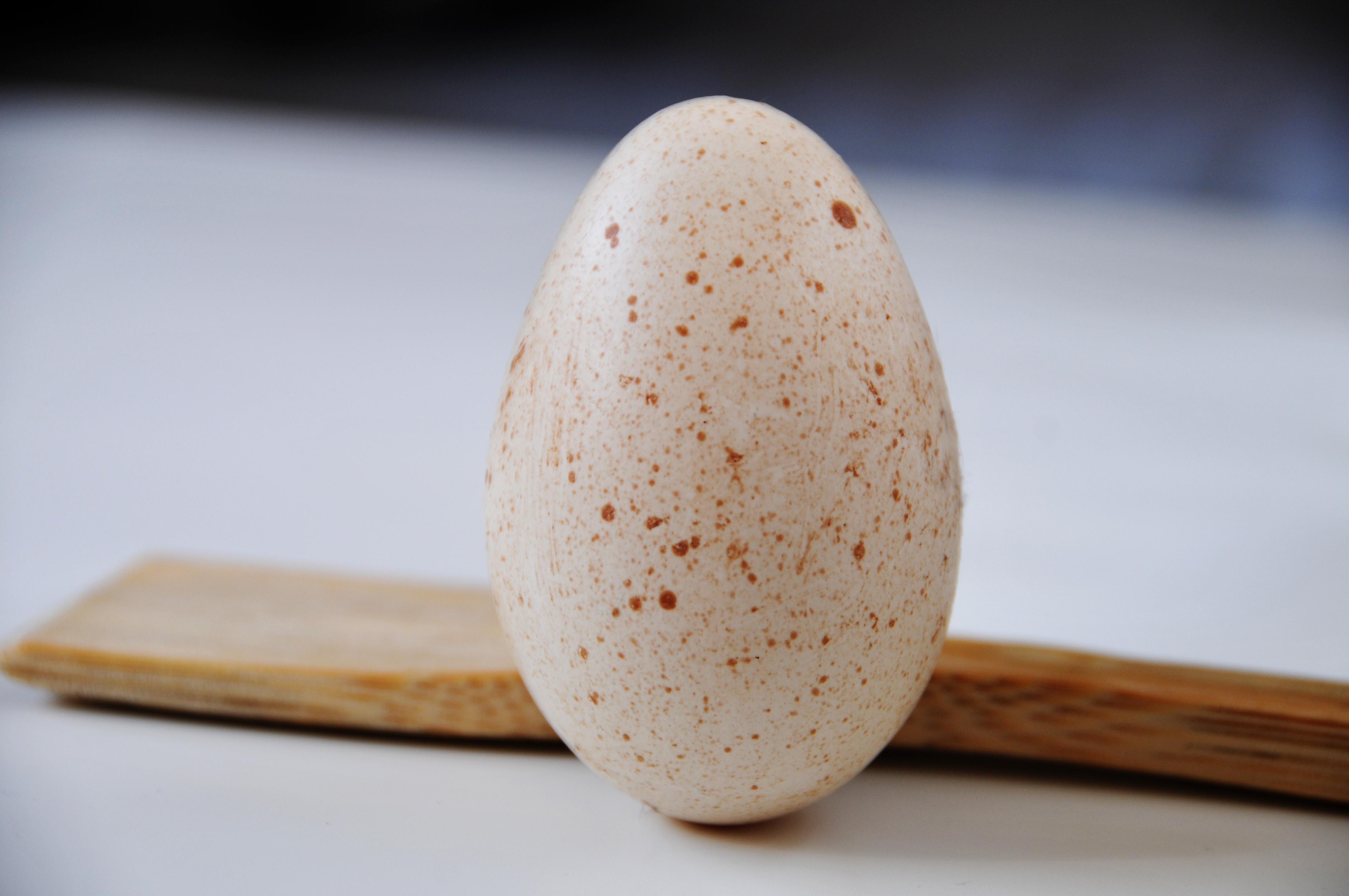Have You Ever Actually Seen a Turkey Egg? Here's What They Look Like
Updated Nov. 26 2019, 2:51 p.m. ET

OK, folks. Let’s talk turkey. As Thanksgiving Day approaches, many people have plans to sit down to a traditional Thanksgiving feast. For most, that means turkey. As I was thinking about turkey (as I so often do), I had a startling realization. I have no idea what a turkey egg looks like.
I mean, turkeys are birds. Obviously. So they lay eggs. But what do those eggs look like? And where are they? I don’t know about you, but I have certainly never seen a turkey egg in a grocery store. And so, I set out to discover the answer to what is maybe the most bizarre question I’ve ever asked myself: What do turkey eggs look like?

What do turkey eggs look like?
In this, the age of the Google search, it wasn’t difficult to find an answer to my question. As it turns out, turkey eggs look a lot like, you know, eggs. They are slightly larger than chicken eggs and typically have brown speckles. Check out the picture above so you, too, can know what a turkey egg looks like.
According to Modern Farmer, the shells of turkey eggs are slightly tougher than the shells of chicken eggs. The membrane between the egg and the shell is also a bit thicker. On average, a turkey egg is between 2 and 2.7 inches long and can weigh between 66 grams and 110 grams. So, that answers my first question. I think we can all agree the next question is obvious.
Can you eat turkey eggs?
Yes! You can eat turkey eggs! You can use them instead of chicken eggs for baking, too. In most cases, you can substitute two turkey eggs for three chicken eggs. They reportedly taste very similar to chicken eggs. Which, now that I think about it, isn’t that surprising. What else would they possibly taste like?

So then, why don’t we eat turkey eggs?
Who knew we’d all be learning so much about turkey eggs today? Anyway, we know what turkey eggs look like, and we know they’re edible, so why aren’t we eating them? As it turns out, getting turkey eggs into the egg market would be both complicated and expensive. First of all, while a chicken usually lays one egg every day, a turkey only lays about two eggs per week.
Turkeys also require more food and more space than chickens (because they’re usually bigger than chickens). And while chickens start laying eggs when they are 5 months old, turkeys don’t start laying until they hit about 7 months. All of these factors combined mean that turkey eggs are just all-around more expensive to produce than chicken eggs.
According to the American Farm Bureau Federation, conventionally produced chicken eggs cost $1.25/dozen. Obviously, this price varies depending on where you buy them, and on whether you are willing to shell out (get it?) for organic/free-range/cage-free eggs. Turkey eggs, on the other hand, cost approximately $3... each.

No one wants to spend $3 for an egg that is basically just a bigger, speckled chicken egg. Thus, it makes more sense for turkey farmers to focus on fertilized eggs that turn into actual turkeys (which, in turn, become Thanksgiving dinner). So there you have it. That’s everything I know about turkey eggs. Now you know it too!